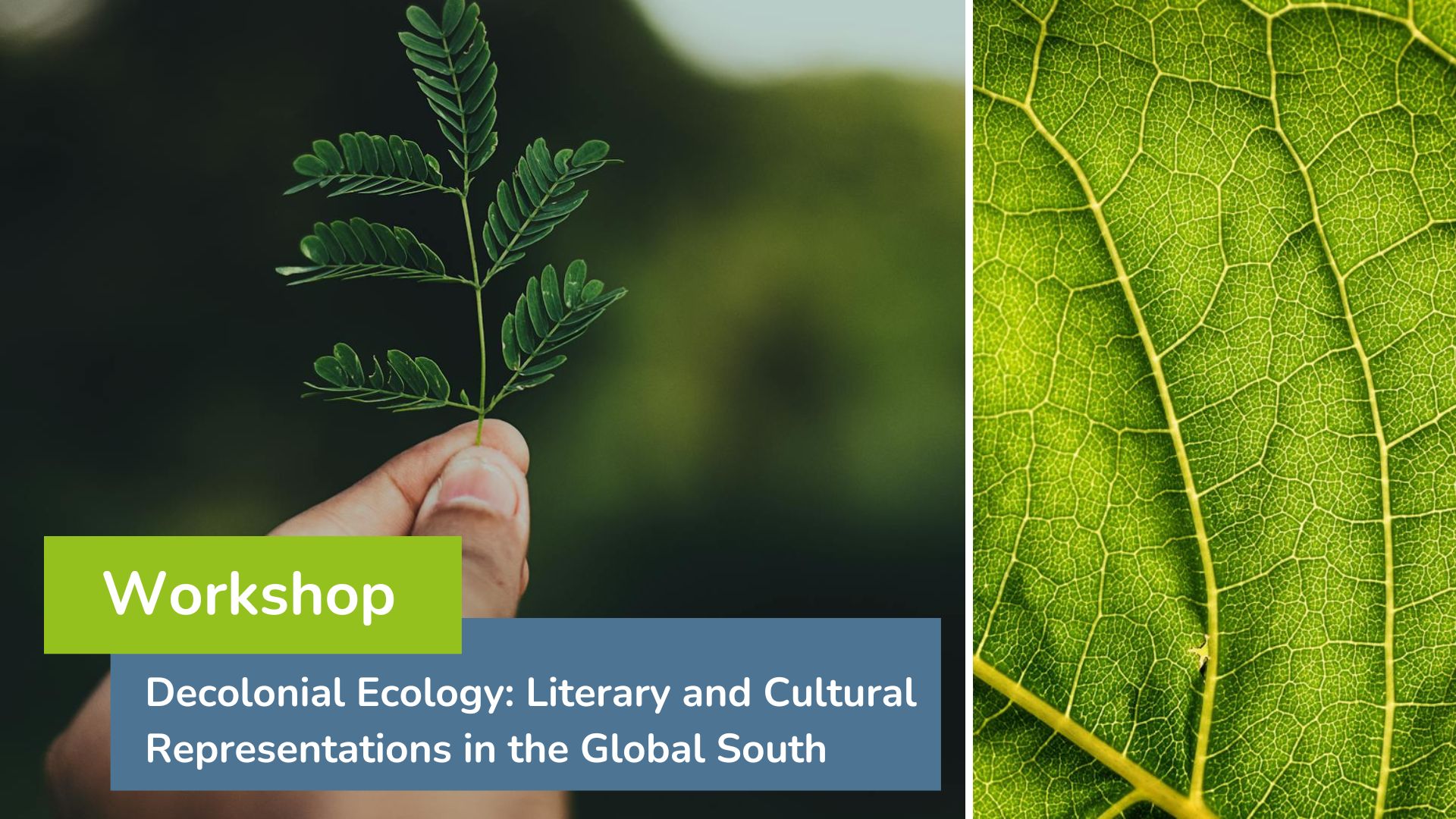
To think ecology from the perspective of colonially repressed ideas and practices is to deconstruct the epistemological hierarchy of environmental humanities. The workshop seeks to deepen the dialogue between ecology and decoloniality in the context of indigenous knowledges and practices of the Global South, examining how literary and cultural artists represent, interpret, and foreground their ancient, autochthonous, and local ecological practices.

The workshop seeks to deepen the dialogue between ecology and decoloniality in the context of indigenous knowledges and practices of the Global South, often epistemologically relegated as non-knowledge. The Global South is invoked here as a geographical marker of formerly colonised nations struggling with severe postcolonial and environmental crises, on the one hand, and, on the other hand, a systematic occlusion of their indigenous knowledge systems. The theme is a bold signpost to examine how literary and cultural artists, including writers, (oral) artists, filmmakers, (traditional) performers, musicians, among others, represent, interpret, and foreground their ancient, autochthonous, and local ecological practices. The theme also privileges the decolonial lessons that can be harnessed from such practices for planetary balance in the present time.
Scholars from Nigeria, India, Cameroon, Uganda, Germany, and the Netherlands will elucidate various aspects of the topic. Their presentations – centred on African and Asian literary and cultural productions – will discuss the entanglement of ecology and coloniality, but also how literary and cultural artists deploy neglected ecological ideas, practices, natures, as decolonial strategies. How, for instance, their representations of the ecology of indigenous communities serve as colonial counter-discourse in the face of universalised forms of western knowledge systems. To think ecology from the perspective of colonially repressed ideas and practices is to deconstruct the epistemological hierarchy of environmental humanities that tend to undermine how historical processes sometimes overdetermine environmentalism in the Global South. It is above all to decongest the ecological epistemic space of any neo-colonial ‘superior’ knowledge system disguised as universality in favour of a communal, pluriversal knowledge system.
Opening proceedings and welcome address
Prof. Dr Sule Emmanuel Egya | College for Social Sciences and Humanities, Germany
Prof. Dr Friedrich Balke | College for Social Sciences and Humanities, Germany
Indigenous Environmental Knowledges in Cameroon Western Grassland Oral Narratives: An Ecocritical Perspective
Prof. Dr Eunice Ngonkum | University of Yaoundé, Cameroon
Tea break
Cultural Ecology in Decolonial Perspective
Prof. Dr Hubert Zapf | Augsburg University, Germany
Lunch break
Indigenous Ways of Knowing and Nonhuman-Human Relations in Ngas Masquerade Culture: An Eco-metaphysical Approach
Dr Peace Longdet | Federal College of Education, Nigeria|
The Sisyphean Drudge of Decoloniality: Thinning Groves and the Ecoimagination Promise
Prof. Dr Chike Okoye | University of Münster, Germany
Tea break
Ritualizing Plants and Decolonial Bioregionalism in Kodagu, India
Dr Subarna De | University of Groningen, The Netherlands
(Re-)Framing Environmental Thinking: Indigenous Ecologies and Decolonial Praxis
Dr Goutam Karmakar | Sidho-Kanho-Birsha University, India
Tea break
Once Upon a Time: Human Relations with the Landscape in Selected Ganda Folktales
Dr Eve Nabulya | Makerere University, Uganda
Confronting Environmental and Epistemic Injustices in the Congo Basin
Dr Nsa Mala | University of Cologne, Germany
Speakers' dinner
Natures and Negritude: Poetry, Coloniality, and Decoloniality
Prof. Dr Sule Emmanuel Egya | College for Social Sciences and Humanities, Germany
Poetry, Water Politics and Decolonial Ecology
Dr John Olorunshola Kehinde | independent scholar, Nigeria
Tea break
Knowing as Belonging: Soil and Indigenous Ecological Knowledge in Chinua Achebe’s Things Fall Apart
Dr Douglas Kaze | University of Jos, Nigeria
Closing, packed lunch, and excursion to Welterbe Zollverein

Prof. Sule Emmanuel Egya
Ibrahim Badamasi Babangida University, Lapai (Nigeria) | African Literature, Environmental Humanities
Sule Egya is professor of African Literature and Environmental Humanities at Ibrahim Badamasi Babangida University, Lapai, Nigeria. His research interests include literature and environment, African migration writing, knowledge production in Africa, and decolonial discourse. His current research examines environmental imagination in African 20th century literature. His monographs include:
Sule Egya has co-edited “Studies in Scientific and Cultural Ecology” (SevHage, 2021) and “Orality, Textuality, Society: New Perspectives on Nigerian Literature and Culture” (SevHage, 2023). He also writes fiction and poetry under the pen-name E. E. Sule. He is the author of the novels “Sterile Sky” (winner of the Commonwealth Book Prize Africa Region, 2013) and “Makwala” (ANA Prose Prize, 2019) and the poetry collection “What the Sea Told Me” (winner of the ANA Gabriel Okara Prize, 2009).
Prof. Patricia Plummer
University of Duisburg-Essen | English and Postcolonial Studies
E-mail: patricia.plummer@uni-due.de